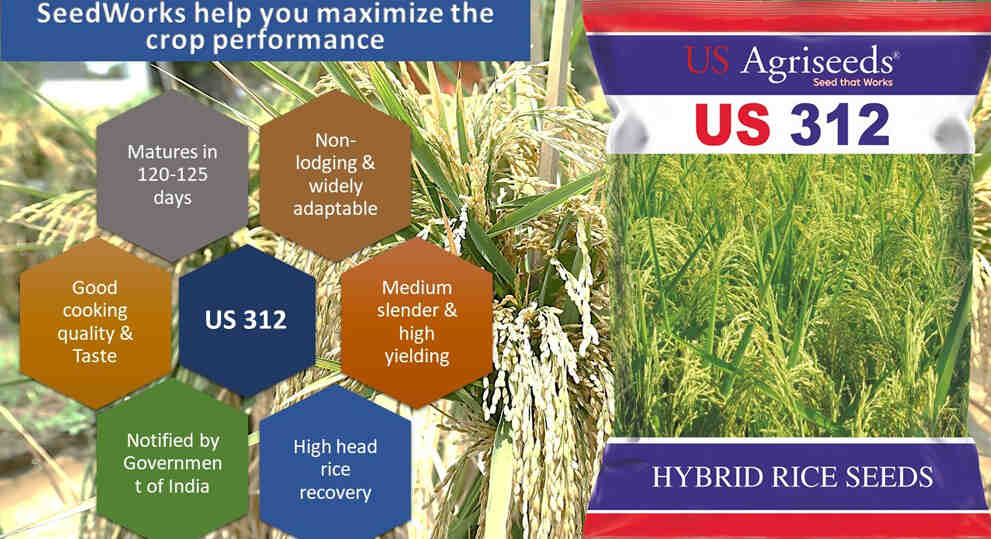Rice is a staple food that sustains millions around the globe, and it plays a vital role in food security, particularly in Asia and Africa. However, the climate, soil types, and agricultural practices differ vastly from one region to another, which can have a significant impact on the yield and quality of rice. This has led to the growing importance of adapting rice cultivation to local environments. One of the key ways to achieve this is through the development and use of region-specific rice seeds, which are better suited to the environmental conditions of each area. This article explores the significance of adapting rice seeds to local conditions, the role of hybrid rice, and why a hybrid rice seed manufacturer plays a crucial role in improving global rice production.
Understanding the Importance of Rice Adaptation
Rice cultivation is deeply influenced by the climatic conditions, including temperature, humidity, rainfall, and soil type. As the world faces challenges like climate change, it becomes increasingly essential to develop rice varieties that can thrive in different environmental conditions. By using region-specific rice seeds, farmers can improve their chances of achieving optimal growth, better yield, and higher resilience to pests and diseases, which are often region-specific as well.
The Role of Hybrid Rice in Enhancing Yield
One of the most significant advancements in rice breeding has been the development of hybrid rice. Hybrid rice varieties, created by crossing two genetically different parent lines, offer several advantages over traditional inbred rice varieties. These hybrids tend to have higher yields, better disease resistance, and increased tolerance to environmental stressors such as drought or salinity. Hybrid rice can be tailored to the specific needs of different regions, with certain varieties being designed to thrive in tropical, subtropical, or temperate climates. A hybrid rice seed manufacturer can develop varieties that meet these unique challenges by understanding the local environmental conditions.
Benefits of Region-Specific Rice Varieties
Region-specific rice varieties offer multiple benefits to both farmers and the environment. When rice seeds are developed to adapt to a particular region, they are more likely to grow efficiently without the need for excessive inputs like water, fertilizers, or pesticides. This can reduce the environmental impact of rice cultivation and help farmers cut down on production costs. Moreover, region-specific rice varieties are more likely to resist local pests, diseases, and climate variations, thus enhancing food security for communities that rely on rice as a staple crop.
Tailoring Rice Seeds to Local Soil Conditions
Different regions possess distinct soil characteristics, which can affect rice growth. For example, regions with clay soils may require rice varieties that can tolerate flooding, while sandy soils may require varieties with better drought resistance. A hybrid rice seed manufacturer can use modern breeding techniques to develop rice varieties that thrive in a specific type of soil. This localized approach ensures that farmers can grow rice with minimal intervention, leading to increased productivity and lower environmental impact.
Addressing Climate Variability with Adapted Rice Seeds
The impact of climate change on agriculture is becoming more pronounced, and rice cultivation is no exception. Unpredictable rainfall patterns, rising temperatures, and extreme weather events such as floods and droughts are becoming more common. Region-specific rice varieties, particularly hybrids, can be bred to withstand these changes. For instance, some hybrids are engineered for drought tolerance, while others can withstand excessive rainfall or flooding. By working with a hybrid rice seed manufacturer, farmers can access varieties that are specifically bred to cope with the challenges posed by climate variability in their area.
The Role of Research and Innovation in Rice Breeding
The development of region-specific rice seeds requires ongoing research and innovation. Seed manufacturers rely on the latest scientific techniques in genetics, genomics, and biotechnology to develop rice varieties that can thrive in different environments. In addition to traditional cross-breeding methods, modern breeding techniques such as marker-assisted selection (MAS) allow for more precise breeding and faster development of new varieties. This scientific approach not only enhances the adaptability of rice but also accelerates the process of developing new, improved hybrids suited to local conditions.
Overcoming Regional Agricultural Challenges
Each region has its unique set of agricultural challenges, such as water scarcity, soil salinity, or pest infestation. By adapting rice seeds to these challenges, farmers can improve their productivity and reduce the need for external inputs. For example, in areas prone to drought, rice varieties with deeper root systems and better water-use efficiency can be introduced. Similarly, in regions where soil salinity is an issue, rice varieties that can tolerate salty conditions are crucial. Region-specific rice seeds help farmers mitigate these challenges, contributing to sustainable agriculture and better food security.
Economic Benefits for Farmers
The adoption of region-specific rice seeds has substantial economic benefits for farmers. By improving yields and reducing the need for costly inputs like fertilizers, pesticides, and irrigation, farmers can significantly lower their production costs. Additionally, the use of high-yielding hybrid varieties ensures a more stable and reliable income for farmers. With better adaptability to local conditions, farmers can also reduce the risk of crop failure, further securing their livelihoods and contributing to the overall economic development of their regions.
Collaboration for Sustainable Rice Production
For the widespread adoption of region-specific rice seeds to succeed, collaboration between farmers, agricultural researchers, governments, and seed manufacturers is essential. Governments can support the development and distribution of region-specific rice seeds through policies that encourage sustainable farming practices and research funding. Agricultural extension services can help educate farmers about the benefits of using region-specific seeds and provide technical assistance. By working together, all stakeholders can contribute to a more resilient and sustainable rice production system.
Conclusion
The adaptation of rice seeds to local environments is crucial for ensuring sustainable, productive, and resilient rice cultivation. Hybrid rice, in particular, offers an opportunity to improve yields, reduce environmental impacts, and address challenges posed by climate change. By investing in research and collaborating with hybrid rice seed manufacturers, regions can create rice varieties that are suited to their unique environmental conditions. This approach not only benefits farmers but also contributes to food security and the economic development of communities around the world. As the demand for rice continues to grow, adapting to local environments through region-specific rice seeds will be a key factor in feeding the world’s population sustainably.






Comments